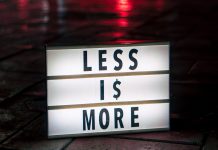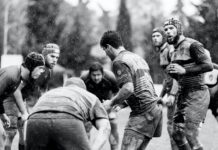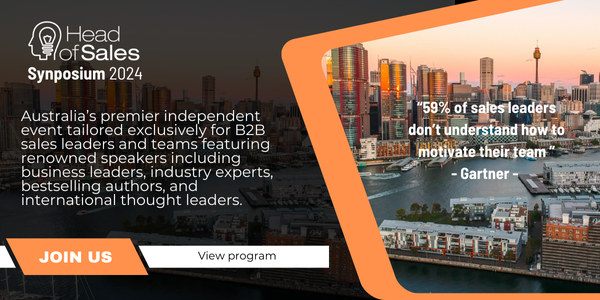‘The reason most salespeople don’t last here’, he said, ‘is because they can’t, or won’t, ask for help’.
I get it! And I agree with the sales leader that uttered those words because I have been guilty of not asking for help because of the meaning I put on it… ‘they will think I don’t know what I’m doing’ which would equate to ‘I am not good enough to be in this role’.
I also am witness to that behaviour when I begin to work with sales teams or salespeople – and statistically, they are typically male. I’m not sure if that is a guy thing where they don’t want to be perceived as weak by asking a woman for help, or I don’t know if it’s a girl thing because I am not a guy.
Doesn’t matter. It is what it is. We get over it together.
But I do come across three different types of salespeople when it comes to growth, change and learning.
There are those who are open and lead with a professional vulnerability and desire to be better.
There are those that push back, question you and throw out a healthy challenge.
Then there are those who really push you and as a result are totally negative and not open to change at all.
What drives each of those behaviours is Ego.
When we think of the word ego, what typically comes to mind are a couple of things:
- Someone who is full of themselves or,
- Someone who is driven so much by fear that they constantly sabotage themselves
But it isn’t quite that cut and dried. Especially in the context of selling.
History tells us that buyers feel pressured by salespeople. They sense a lack of trust. In fact according to the American Management Association who interviewed 1100 buyers on that topic, they ranked pushiness (24%) and refusing to accept a “no” (23%) as the most offensive behaviours, with not listening (18%) trailing close behind.
And that’s because salespeople tend to talk at buyers, ‘tell’ them what they should do and expect them to do it which makes the buyer feel they have to justify their decision if they don’t. They don’t let up and instead ‘tell’ them about their product and what they can expect and why they should buy and then why they should buy before Friday and if you can’t buy before Friday, we’ll tell you about other products we can give you for free to make you buy. Seriously!!
When salespeople find themselves in a perfect environment, with a prospective buyer, an environment that lends itself to asking quality questions, most don’t.
So what will change this perception and behaviour?
Well, like most things – the answer is not found in a textbook.
The answer is right in front of you, beside you, behind you, within you.
Your Ego.
In fact, we have three egos, as the Austrian neurologist and founder of psychoanalysis, Sigmund Freud, shared with us and they relate SO MUCH to salespeople. Not to be confused with these three egos … but possibly very much aligned for some 🙂
They are:
1. The Parent (or Ego)
2. The Child (or Id)
3. The Adult (or Super Ego)
Keeping it simple, let’s look at how each impact on a salesperson and the impact on their business relationships and results.

The Parent (Ego)
Think of a parent’s behaviour and how they typically communicate to the child. They tell the child what to do and what not to do to fit into the norm of society. They protect the child making sure that rules are understood and adhered to, are right and wrong and etiquette is understood. They chastise the child. They know more than the child. They will speak for the child. They don’t often listen to the child. (Note to parents – no guilt necessary J)
My question is – how many salespeople, because of their upbringing and conditioning (and there are always exceptions), continue that behaviour with their teammates or clients? They are uncomfortable in the silence, don’t listen well enough, don’t ask nearly enough questions and default to ‘telling’ about product and why they should buy.
The Child (or Id)
There is an impulsive child within all of us that responds to instincts. And when we consider a child, that child operates predominantly through emotion – resourcefully and unresourcefully. The child can be the uplifter and one who brings immense joy and can also be the whinger and tantrum thrower you struggle to communicate with. Those of us with kids will understand this.
My question is – how many salespeople continue this behaviour in the workplace? How many expect to have people do things for them at the drop of a hat, decide to ‘wing it’ in a sales call without any preparation, have an air of entitlement, complain because someone’s territory has more accounts that theirs, whinges because they can’t get their product delivered when they want it, are resentful of others success or bully other people. I have a saying, ‘heal the child and the adult will appear’.
The Adult (or SuperEgo)
When we are with someone who is in their adult ego, we can feel it, see it and hear it. An adult is rational. Is logical. An adult weigh things up, is patient, asks questions before making a decision and is respectful of other people. The adult helps the parent bring values and morals to the table and a certain ‘lifting of the bar’ whilst also keeping the child and their emotions in check.
My question is – how many salespeople have the desire, or commitment, to shift the way they think about themselves in order to move more into adult? How many salespeople, or leaders even, would win more respect, generate more business and leave a lasting positive impact on the people they deal with, if they could learn to ask better questions, be more present, be more ‘in tune’ with the people they were sitting opposite and learn to use their parent and child ego in balance?
So, which ego is costing YOU business, relationships or results?
On that note, from me, myself and I….






























